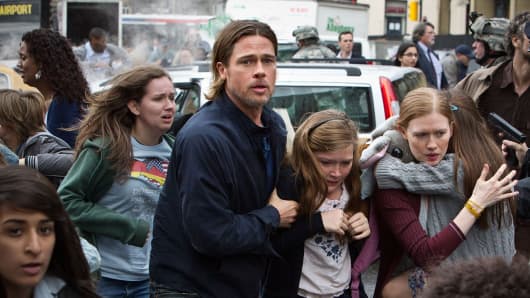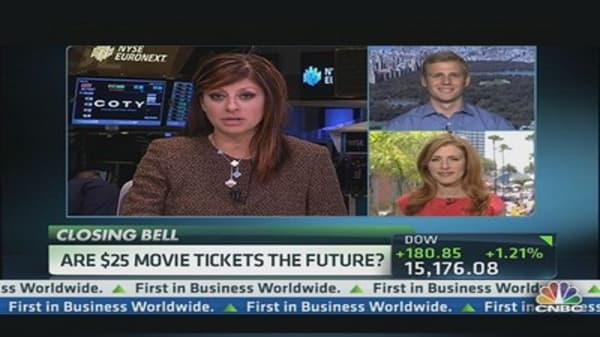Have you been to a movie in a real movie theater lately?
If you haven't and are easily frightened or depressed, you might want to hold off on actually taking your seat until the last minute.
That's because if you do get there on time, you're in for at least a half dozen previews of films that are all about the same thing: the end of the world.
You'd have to be really avoiding the movie listings lately to not notice that every major studio has released two to three movies this year alone that all begin or end with the end of humanity on Earth, a massive destruction of our ecosystem, dystopian misery and a general apocalyptic vision of the future.
(Read More: Growing Up Will Help Economy...So Grow Up Already)
Hollywood's most creative minds truly seem to be trying to outdo each other with just how bad a picture they can paint of the next few centuries or even decades to come.
Let me just give you a quick synopsis of just some of the endless Armageddon films recently released or going to be released soon:
"World War Z": Zombies deplete most of the world's population, nuclear war destroys parts of the Middle East, Brad Pitt still has great hair.
"After Earth": Apparently, Will Smith's son Jaden did something REALLY bad at home and his punishment was having to co-star in a really bad movie with his dad.
"Elysium": The citizens of the satellite city Elysium live a life of luxury while the citizens of a ruined Earth struggle to survive and can't penetrate Elysium's anti-immigration laws … was this movie produced by The Gang of Eight?
"This Is the End": The world comes to an end and a group of successful young actors must prove to be unselfish enough to enter Heaven. They should have called this "Mission Impossible 5."
"Oblivion": Tom Cruise flies around a post-alien-world-destroyed Earth, apparently looking for an anniversary gift for the wife he suddenly remembers he had.
"The Hunger Games: Catching Fire": Most of the world is destroyed, and what's left of America delights in seeing teenagers killing each other on TV … wait, isn't that what happens on "Jersey Shore"?





